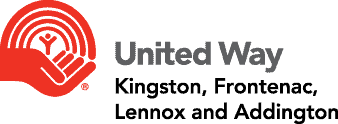City and United Way release 2018 homelessness enumeration and survey results
KINGSTON, ONT./Nov. 8, 2018 – The City of Kingston and United Way of KFL&A are releasing the results of the 2018 enumeration of people who were homeless in the City of Kingston and County of Frontenac.
Through an Urban Kingston Point-In-Time Count and a County of Frontenac and Rural Kingston enumeration process, agency staff and trained volunteers administered surveys with people in emergency shelters, short-term housing, those sleeping rough (i.e. without shelter), amongst other locations in the community.
The objectives of homelessness enumeration are to help understand the extent and characteristics of the population experiencing homelessness. The results will be used for policy and program planning with the aim of ending chronic homelessness in the community.
“Homelessness enumeration provides important information to assist in ensuring available funding is directed to meet the needs of those experiencing homelessness and will help monitor progress overtime,” says Sheldon Laidman, director, housing and social services at the City of Kingston.
Key findings from both the 2018 Urban Kingston Point-In-Time Count and the County of Frontenac and Rural Kingston enumeration include:
- The number of individuals sleeping unsheltered or in emergency shelters in the urban area decreased by 12%, while the total number of individuals without permanent housing (including those living in transitional housing) increased by 11%.
- In both urban and rural counts, females comprised approximately one-half of the homeless population. Compared to other communities in Canada, females typically comprise 25% of the homeless population.
- Approximately 80% of all survey respondents self-identified as experiencing a mental health issue.
- Of those surveyed, 24% identified as Indigenous in the urban area and 46% in rural areas, an increase over 2016.
- The number of youth experiencing homelessness in both the urban and rural areas increased from 2016 to 2018. In the urban area, youth comprised 26% of the homeless population and 24% in the rural area.
- The main barriers respondents indicated for not having stable housing included: not enough income, rents are too high, housing is not available, and family/relationship conflict.
Urban Kingston Point-In-Time Count
United Way of KFL&A conducted Kingston’s third Urban Point-in-Time Count (PiT Count) on April 11th 2018. A PiT Count is a census of people who are homeless at the time of the count. This includes a brief, anonymous survey of people in emergency shelters, domestic violence shelters, transitional housing, police custody, detox programs, and those staying outdoors in parks, makeshift shelters, on the streets, and in other public areas at the time of the count.
United Way of KFL&A staff and trained volunteers administered the surveys with people in emergency shelters, short-term housing and those sleeping rough (i.e. without shelter). Kingston was one of more than 60 communities across the country to participate in the second nationally coordinated PiT Count of those experiencing homelessness. Over 80 volunteers assisted in the local PiT Count process. Previous PiT counts in Kingston were completed in 2013 and 2016. Funding was made possible through a grant from Employment and Social Development Canada’s (ESDC) Homelessness Partnering Strategy (HPS).
“I’d like to extend a special thank you to volunteers, agency staff and emergency services for their participation and support of the 2018 PiT Count. The data collected provides us with information to better understand the issue of homelessness in Kingston,” says Bhavana Varma, President & CEO, United Way of KFL&A.
County of Frontenac and Rural Kingston Homelessness Enumeration
From April 9th to the 20th the City of Kingston conducted a homelessness enumeration process within the County of Frontenac and Rural Kingston. Over the two-week period, in collaboration with Southern Frontenac Community Services, Rural Frontenac Community Services, and Addiction and Mental Health Services KFL&A, local social service staff administered the enumeration survey during regular interactions with clients.
In the rural area where there are no emergency shelters, homeless individuals and households are more likely to be living with friends or family or in shelters which are not intended for long-term accommodation (e.g. recreational vehicles, hunt camps, cabins, etc.).
2018 ResultsTo review the complete urban and rural summary reports visit:
Urban Kingston Point-In-Time Report
County of Frontenac and Rural Kingston Homelessness Enumeration Results Report
To learn more about available programs visit:
https://www.cityofkingston.ca/residents/community-services/housing/homeless
https://www.unitedwaykfla.ca/youth/







Leave a Reply